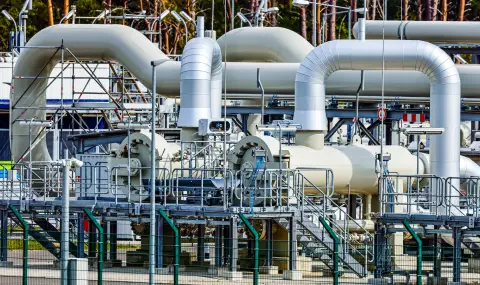Gas storages in the EU are 95% full and the countries of the union for another winter they won't freeze – despite the ridiculous threats of the war criminal Vladimir Putin, who has been waging a full-scale war against Ukraine since 2022.
EU member states have agreed a legally binding target to fill their gas storage facilities to 90% of their capacity by 1 November each year to ensure security of supply and market stability during the winter months.
Ahead of this year's deadline, gas storage levels across the EU are above 95% according to the latest figures published by “Gas Infrastructure Europe“. Currently, around 100 billion cubic meters of gas are stored in the EU, which represents around a third of the EU's annual gas consumption.
Energy Commissioner Kadri Simson said: “When Russia invaded Ukraine and tried to blackmail Europe with its energy supplies, we took swift action to protect against future supply shocks. These efforts are paying off and we enter this winter with a satisfactory level of gas storage across Europe, a diversified energy supply, a higher share of energy from renewable sources and a renewed commitment to energy efficiency and energy savings. This puts us in a strong position to keep supplies and prices stable this winter and continue the transition away from Russian fossil fuel imports.“
In Regulation on gas storage from June 2022 sets binding EU target to fill 90% of storage facilities by November 1 each year. This regulation is one of a whole range of measures taken by the EU after the energy crisis caused by the Russian invasion of Ukraine to better prepare the European energy system for the winter season. In the last two years with the introduction of the plan REPowerEU, the EU has drastically reduced its dependence on Russian fossil fuels.
Each year from 2023, special monitoring of gas storage should be carried out from February to avoid rapid withdrawal of gas from the underground gas storage facility in the middle of winter, which could create challenges for the security of supplies before the end of winter. Filling schedules should allow for continuous monitoring throughout the filling season, the regulation agreed.
Efficient use of existing infrastructure, including cross-border transmission capacity, underground gas storage facilities and LNG (liquefied natural gas) facilities, is important to ensure security of gas supply in a spirit of solidarity. Open energy borders are key to the security of gas supply, including in times of gas supply disruptions at national, regional or Union level.
